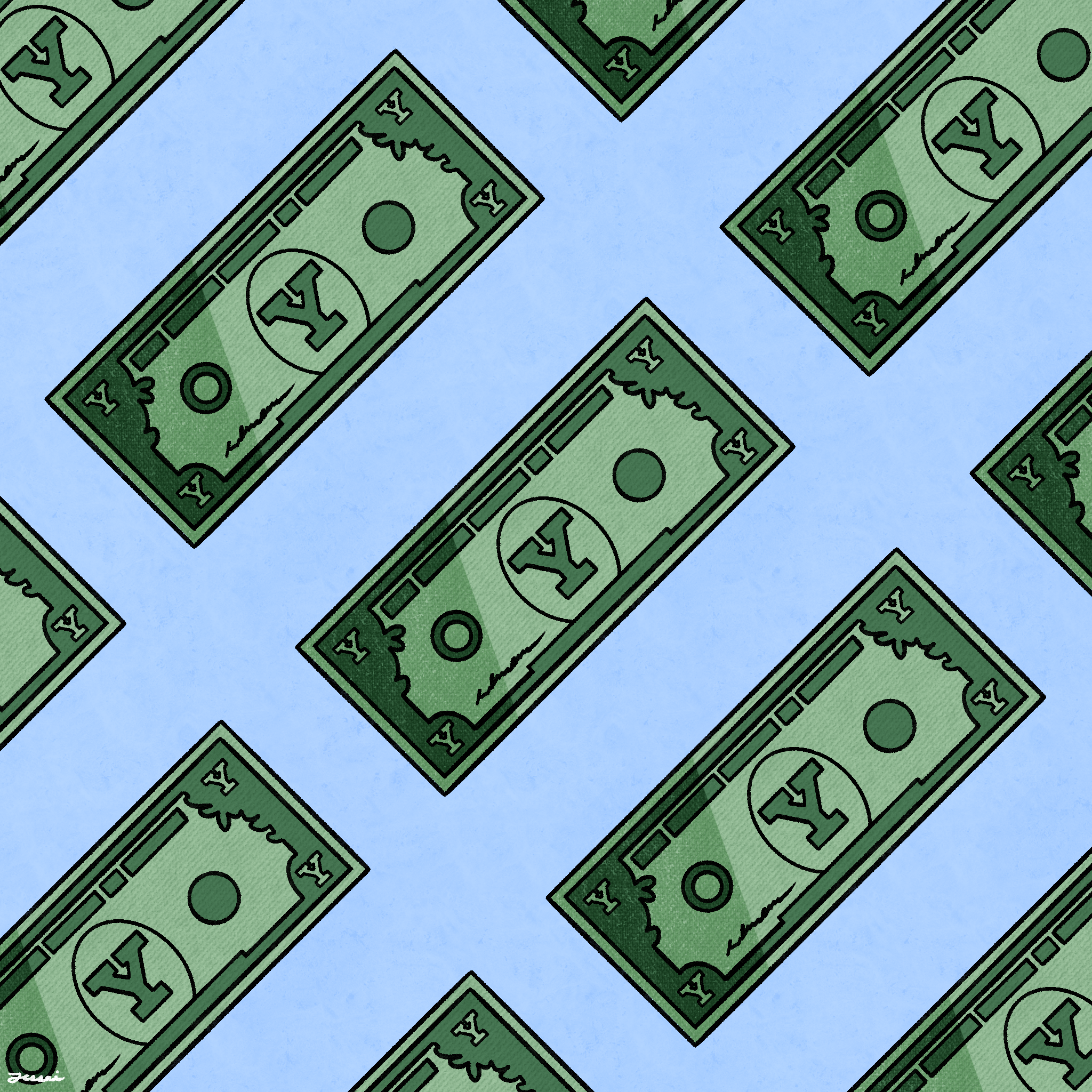Salovey returns to his travels at “full speed”
This fall, Salovey’s travels returned to full speed as he participated in fundraising efforts, met with other leaders of other universities and lobbied across the nation, from Washington D.C. to California.

Jessai Flores, Illustrations Edito
This fall, University President Peter Salovey resumed traveling around the world, soliciting donations face-to-face.
His travels have been largely for two reasons — to court alumni and donors and to represent Yale in academic and government policy conversations. Among his destinations this fall: San Francisco, Los Angeles and London — making appearances at alumni events and speaking to potential University donors along the way. While the pandemic slowed the University President’s travels over the past two years, Salovey says that his travel bookings have “returned to full speed” this fall.
“It is wonderful to be able to see alumni, friends, and colleagues again in person across the country,” Salovey told the News.
How Salovey makes it work
Salovey explained that when he travels, he is generally meeting with alumni and talking to them about the University’s priorities for the next five to 20 years. The alumni that he talks to, Salovey said, often “have a history” of supporting the University — and the conversations he has with them are tailored toward what they would like to support at Yale and the ways in which they could help in these areas.
“It takes a number of these kinds of meetings before someone makes a gift,” Salovey said about his travels. “But, it is the way that you know, fundraising is a face to face activity. We did a lot of it over Zoom. You could do that. But I like to get face-to-face better.”
But Salovey also makes appearances at larger events, especially “big programs for alumni to bring them together.” These meetings are themed, Salovey said, and are a place where a group of faculty and other alumni meet. The goal of these events is not only to court future donors, but to also gain new ambassadors to the University, who help by interviewing prospective students or organizing their own events for other young alumni in their homes.
But during these events, he isn’t making donor requests. Instead, he will find an opportunity to follow up afterward or even catch up beforehand.
“I’m mingling, I’m talking, I’m trying to listen to what’s on people’s minds,” Salovey said.
One recent event, Salovey recalled, was one hosted in Los Angeles — where many young alumni are involved in the entertainment industry. The University hosted a program with Yale alumni and faculty on the theme of storytelling, including in dramatic series and musical scores in movies, giving short talks and taking questions.
“The event is not a fundraising event,” Salovey said. “The event is a community building event. And that’s part of what we do on the road too. It’s just as important.”
And following the peak of the pandemic, such gatherings have grown in number.
The historical role of the University President
“Meeting with alumni is an important part of the role of all university presidents,” Joan O’Neill, who serves as vice president for alumni affairs and development, wrote in an email to the News. “President Salovey considers this a very high priority and this involves travelling a fair amount.”
O’Neill told the News that, in particular, Salovey’s travels to California included several all-alumni events for the “For Humanity” campaign — a $7 billion fundraising campaign.
Senior Vice President of Operations Jack Callahan ’80 told the News that Salovey uses his travels to strengthen outlets for staff to support the University’s mission, such as building renovations and financial functions.
“One of Peter’s presidential goals is to improve the infrastructure of the University,” Callahan said. “He’s quite committed to that.”
But Salovey’s goal isn’t a new one — in fact, it’s been a big part of the job in past administrations.
Henry Chauncey Jr. ’57, a former longtime administrator at Yale, told the News about the significant influence of the University President’s role.
“[There’s] only one person who can raise big gifts and that’s the president,” Chauncey said. “If you’re a billionaire, and some junior person in the [development] office calls you up and says I want you to give me a billion dollars, you’re not even gonna answer the phone. But if the president of Yale University wants to talk to you, you’ll probably talk.
Chauncey described the way Salovey’s conversations with potential donors — such as wealthy individuals and foundations — works. According to him, Salovey will convince these donors to give money by figuring out what they “really love” — the sciences, for example — and suggest that they donate to build a project in that area, like a science building.
But fundraising is not the only common thread that connects Salovey’s travels to those of past presidents.
Salovey told the News that when he travels to visit government leaders in Washington D.C. and other cities, he conducts advocacy work on behalf of faculty and students at Yale as well as other institutions of higher education. Chauncey explained that such tasks are in line with the University President’s responsibilities.
“All fundraising presidents are asked to testify in front of a committee of Congress,” Chauncey said. “And it’s not a hot topic that you get in the press. You’ll never read about it.”
Chancey added that Salovey travels for academic or organizational issues. Salovey confirmed that his time is divided alongside “meeting with other university leaders” through organizations such as the Association of American Universities and Consortium on Financing Higher Education.
In general, Chauncey said that it can be hard for undergraduates to “remember” that he is the president of Yale University, not just the college. As such, his role is to look at the whole University and “trying to put it all together.”
Peter Salovey became President of Yale University in July 2013.







